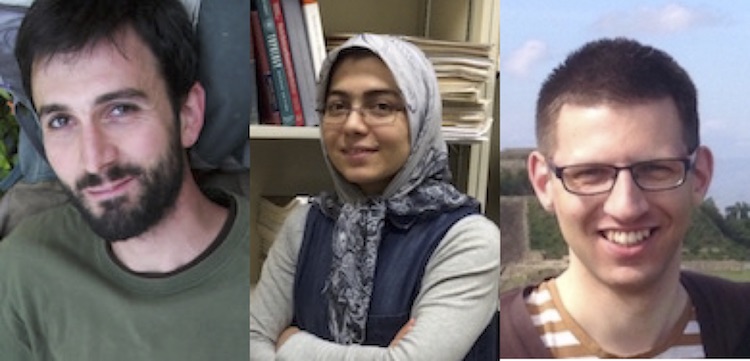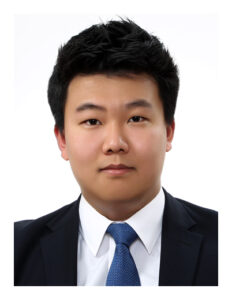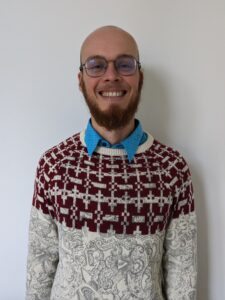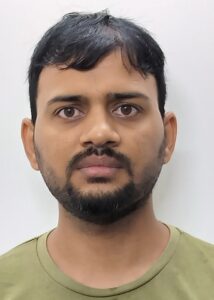
AARMS postdoctoral fellowships attract talented young mathematical scientists from around the world to pursue advanced research. The next competition will open October 9, 2023. We highly recommend that you read the RULES before applying.
Table of Contents
Postdoctoral fellows
Current fellows
Past fellows
- Matthew Amy, Dalhousie 2019-21
- Marzieh Bayeh, Dalhousie 2016-18
- Roslaind Cameron, Memorial 2017-19
- Evgeny Chibrikov, Memorial 2009-11
- Alin Ciuperca, University of New Brunswick 2009-11
- Kia Dalili, Dalhousie 2005-07
- Pranabesh Das, Dalhousie 2021-22
- Dipanjan Dey, Dalhousie 2022-24
- Marco de Cesare, University of New Brunswick 2018-20
- Chris Duffy, Dalhousie 2015-17
- Jonathan Gallagher, Dalhousie 2019-21
- Mahya Ghandehari, Dalhousie 2010-12
- Alexei Gordienko, Memorial 2010-12
- Daniele Gregoris, Dalhousie 2015-17
- Nathan Grieve, UNB 2015-17
- Thomas Guedenon, Mount Allison 2003-05
- Rebecca Hammond, Acadia 2007-09
- Sigbjorn Hervik, Dalhousie 2005-06
- Daniel Horsley, Memorial 2008-10
- Golam Hossain, University of New Brunswick 2008-10
- Qingzhong Huang, Memorial 2018-20
- Melissa Huggan, Mount Allison, 2021-22
- Blake Keeler, Dalhousie, 2022-23
- Tobey Kenney, Dalhousie 2006-08
- Dawood Kothawala, University of New Brunswick 2010-12
- Alexandre Landry, Dalhousie, 2022-24
- Suzanne Lanéry, University of New Brunswick 2018-20
- Peter LeFanu Lumsdaine, Dalhousie 2010-12
- Shuabing Liu, Memorial 2017-18
- Rory Lucyshyn-Wright, Mount Allison 2015-17
- Luca Marchetti, UNB 2022-24
- Juan Margalef, Memorial, 2021-23
- Rogers Mathew, Dalhousie 2011-12
- Charles Paquette, University of New Brunswick 2012-14
- Rui Peng, Memorial 2010-12
- Israel Rocha, Dalhousie 2015-16
- Viraj Sanghai, Dalhousie 2017-18
- Hongying Shu, UNB 2011-13
- Douglas Stones, Dalhousie 2013-14
- Martin Szyld, Dalhousie 2019-21
- Ryan Tifenbach, Memorial 2012-14
- Daniele Turchetti, Dalhousie 2018-20
- Justin Tzou, Dalhousie 2013-15
- Francis Valiquette, Dalhousie 2011-13
- Geoffrey Vooys, Dalhousie, 2021-23
- Michael A. Warren, Dalhousie 2010-11
- Abraham Westerbaan, Dalhousie 2019-20
- Ping Wong Ng, University of New Brunswick 2003-05
- Yuzaho Wang, Memorial 2013-15
- Abraham Westerbaan, Dalhousie 2020-21
- Oliver Winkler, University of New Brunswick 2004-06
- Nomaan X, University of New Brunswick 2020-24
- Qi Xiong, Memorial, 2023-24
- Fanheng Xu, Memorial, 2022-23
- Shuwen Xue, Memorial 2021-22
- Dansheng Yu, Saint Francis Xavier 2006-08
- Peng Zhou, Memorial Univeristy 2015-17
- Baocheng Zhu, Memorial University 2015-17
- Jonathan Ziprick, University of New Brunswick 2014-16
Rules and procedures
Please read these rules carefully. Every year a large quantity of applicants are rejected for not having read the rules.
Eligibility and place of tenure
AARMS postdoctoral fellowships are awarded, on the recommendation of its Scientific Review Panel (SRP), to beginning researchers who received their PhD no more than four years before the Stage 1 deadline given below. Applications will be considered from those who anticipate receiving their PhD before the proposed start time of the fellowship, however the PhD must be in hand before actually beginning the fellowship. AARMS will provide $30,000 per year for the fellowship and the supervisor is responsible for organizing matching funds of at least $20,000. In addition, AARMS will provide travel funding of up to $1500 per year for all AARMS funded postdocs.
It is typically expected that the proposed supervisor will not be the same person as the applicant’s PhD supervisor, and that the proposed Postdoctoral Fellowship will be at a different university than the one at which the PhD was awarded. The proposed supervisor(s) must be a full-time tenure track or tenured faculty member at an AARMS member university, and the proposed research must be in the Mathematical Sciences or a closely related field. A co-supervisor who is outside of Atlantic Canada may be proposed but the postdoc may not spend more than one semester per year outside Atlantic Canada.
Duration
Normally two years. Funding for the second year is dependent upon satisfactory performance demonstrated in the detailed progress report submitted by the supervisor(s).
Application
Applicants must first choose one or more faculty members from AARMS member universities who they wish to nominate as potential supervisors. Applicants may also nominate a team of Atlantic researchers as co-supervisors, possibly at different Atlantic Canadian Universities. Candidates are strongly encouraged to contact prospective supervisor(s) in advance to gauge their interest/ability to support the applicant as a postdoctoral fellow.
Once the potential supervisor(s) have been selected, the applicant should create an application in response to the “AARMS Postdoctoral Fellowship” advertisement on MathJobs.org. The application should include:
- A cover letter stating the proposed supervisor(s).
- An up-to-date CV including publication list.
- A detailed description of the research area and the research to be carried out during the tenure of the fellowship as well as a description of how the candidate would interact with the supervisor(s).
- Letters of reference from at least two referees. Referees should be persons who are familiar with the candidate’s work and can comment on their suitability for an AARMS postdoctoral fellowship.
- Completion of our EDI Self-Identification Questionnaire.
We highly recommend that you complete this stage of the application well before the deadline. People you ask to provide letters of reference are usually very busy and may not be able to respond in time if you give them short notice. Without the required letters of reference your application will not be successful.
It is permitted for a supervisor to support more than one applicant, subject to the following restrictions:
- The supervisor is only permitted to support as many applicants as the supervisor has financial resources to fund, considering that all such applicants might be successful. The supervisor must demonstrate this financial capacity to support all applicants in the letter of support.
- The supervisor is encouraged to provide, in the letter of support, a ranking of the multiple applicants for whom they are named as the sole supervisor.
AARMS aims to increase the participation of under-represented groups in the mathematical sciences. We welcome postdoctoral applications from Aboriginal people, persons with disabilities, visible minorities, women, and persons of any sexual orientation or gender identity.
Assessment
Applications will be reviewed by the Scientific Review Panel, who will make a recommendation to the Director.
Timetable
Dates which fall on a holiday or weekend will shift to the next business day.
- October 9 – MathJobs.org will begin accepting Stage 1 applications
- November 15 – Stage 1 application deadline. All material from applicants, including letters of reference, must be received by MathJobs.org by 11:59 pm, Atlantic time.
- November 16 – 23 – AARMS contacts potential supervisors named in Stage 1 applications.
- December 14 – Stage 2 application deadline. Letters of support from potential supervisors must be received by 11:59 pm, Atlantic time.
- February 1 – Deadline for the assessment phase. Initial offers on Postdoctoral fellowships are made within the next few weeks. The department/university offered an award is requested to provide to AARMS a signed “funding package”, showing the annual contributions by the supervisor(s), the department, and the university. Their amount has to be at least $20,000 and may require that the fellowship holder teach up to one class each term (including spring/summer sessions). If an offer is declined AARMS reserves the right to either offer or to refrain from offering a fellowship to the next candidate in the ranking. If a successful candidate has also been offered an NSERC postdoctoral fellowship it is permitted to accept the AARMS award as well. In this case AARMS will contribute $7,500 per year on top of the NSERC award. No matching fees will be required from the supervisor(s).
- June 30 – Deadline for reports from supervisors of renewing PDFs. The supervisor must submit a detailed progress report, outlining the research work and listing publications, talks, etc. The PDF is also expected to acknowledge the support of AARMS in their publications.
- August 31 – Latest possible termination date for the second year of a PDF.
- September 1 – Start time for the fellowship. AARMS will transfer $15,000 (first half of the annual amount) during the month when the PDF starts their programme, and the same amount six months later. This is done upon receipt of a formal invoice from the hosting department/university. It is acceptable for the start of a fellowship to be delayed up until December 1, but funding will be reduced proportionate to the delay. This reduction will be reconciled in the second year of funding.
Apply
All applications should be submitted through MathJobs.org. A listing will be open for applications on that site on October 9 at the following link:




